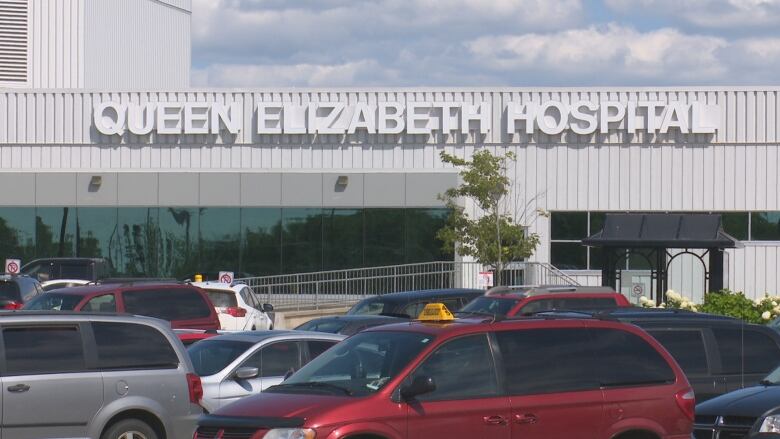P.E.I. hospitals try to keep mothers and babies born with opioid withdrawal together, doctor says
Length of hospitalization greatly shortened if mothers kept with newborns

Newborns born with an opioid dependency should be kept with their mothers and P.E.I. hospitals are doing what they can to make that happen, says a Charlottetown pediatrician.
The Canadian Paediatric Society recommends babies with neonatal abstinence syndrome should room with their mothersbecause the treatment time for the newborn is drastically reduced.
Babies with the syndrome have mothers who are using opioids, such as methadone.
About 50 to 75 per cent of infants born to women on opioids will need treatment for withdrawal.
Traditionally, morphine has been used, with clinicians administering increasingly smaller doses over time until a baby is completely weaned off the replacement drug.
Dr. KathrynBigsby, a pediatrician at Queen Elizabeth Hospital, said staff have been encouraging mothers to stay with their newborn for five days and will make arrangements to allow this to happen as often as possible.
"We provide the mothers with some information about what withdrawal in newborns looks like so thatthey'll be prepared to help monitor their baby," she said.
"Parents are generally very sensitive to the importance of doing this because most have had some experience with withdrawal and they want to be sure that their babies do okay."

QEH and Prince County Hospitalsaw 108 babies between the 2012-2017 fiscal years who were treatedfor neonatal abstinence syndrome. In the most recent fiscal year, 23 babies were treated.
The numbers have remained stable throughout the most recent five years, unlike in other provinces, such as Ontario, which have seen huge increasesin babies needing treatment.
Bigsby said the babies might have symptoms within 24 hours but mothers are asked to stay fivedays for treatment and to help the babies feed.
"We have arrangements in place to accommodate the mothers on the unit taking care of their babies until the babies are ready for discharge,"Bigsbysaid, adding the same procedure is in place for babies who are on antibiotics, have aninfection or have other problems that need monitoring.
Low numbers make targeted programs difficult
She said she would like to see more care for mothers with addiction, some way to help mothers who live farther away or who have other children to take care of, and to be able to provide more privacy for mothers in the hospital.
The setup right now is on an as-needed basis and because the number of babies with neonatal abstinence syndrome is low and fluctuates, it's difficult to provide a permanent room.
"We will have stretches of time where we won't see one for a while and then we might have two or three at a time," she said.
"What we hope happens is that when a woman is pregnant and is usingopioidsshe has the information that she needs so that her needs are being met."
She also would like to see a home program for babies who are stable on morphine similar to other programs in Canada, but there are not enough moms and babies for that right now on P.E.I.
- MORE P.E.I. NEWS |Mi'kmaq had no 'veto' over Mill River sale, government lawyer says
- MORE P.E.I. NEWS |Why Charlottetown's ringette president is against the new arena proposal
With files from Island Morning












_(720p).jpg)


 OFFICIAL HD MUSIC VIDEO.jpg)
.jpg)



























































































